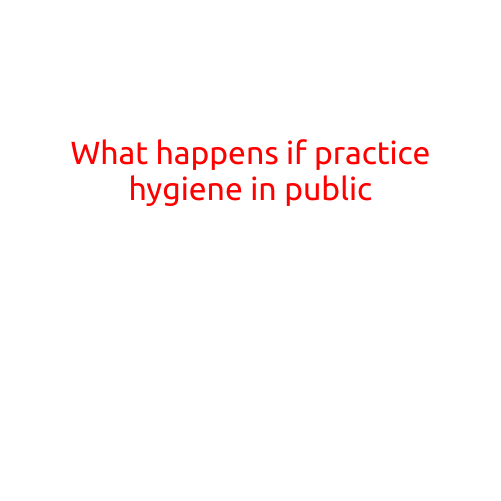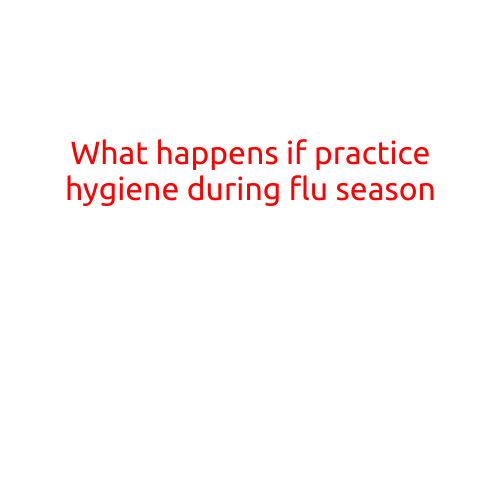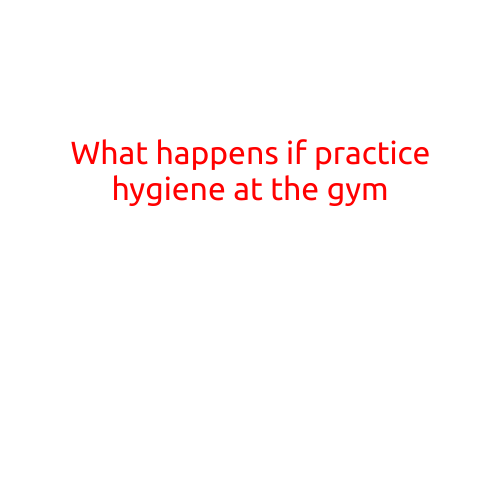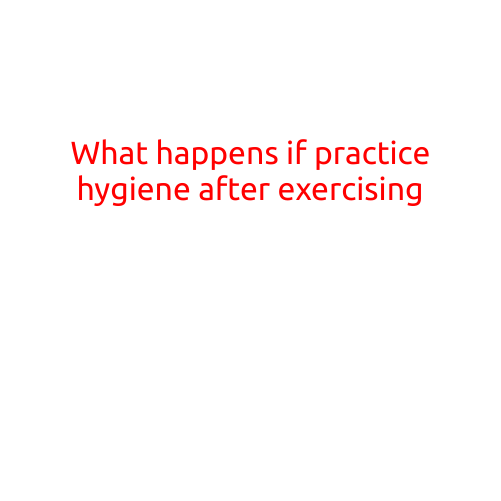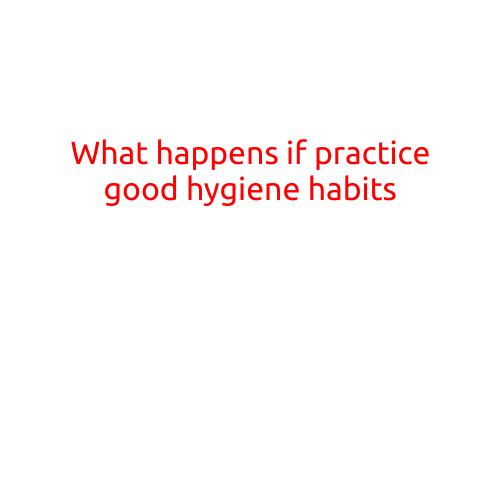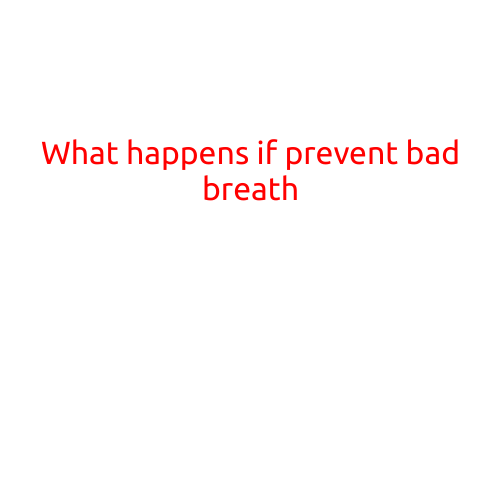
What Happens if You Prevent Bad Breath
Bad breath, also known as halitosis, is a common concern that affects millions of people worldwide. It can be a source of embarrassment and anxiety, especially when interacting with others. However, preventing bad breath is not only about improving your oral hygiene, but it can also have a significant impact on your overall health.
Why Preventing Bad Breath Matters
Bad breath is often a sign of an underlying issue, such as gum disease, dry mouth, or sinus infections. If left untreated, these conditions can lead to more severe problems, including:
- Gum disease: The bacteria that cause bad breath can also cause periodontal disease, leading to tooth loss and bone damage.
- Dry mouth: A lack of saliva can increase the risk of tooth decay and make it difficult to speak or eat comfortably.
- Sinus infections: Untreated sinus infections can lead to chronic sinusitis, bronchitis, and even pneumonia.
- Digestive problems: Bad breath can be a sign of gastrointestinal issues, such as acid reflux, ulcers, or malabsorption.
By preventing bad breath, you can:
- Improve your oral health: Fluoride-rich toothpaste, regular flossing, and mouthwash can help remove bacteria and reduce plaque buildup.
- Increase saliva production: Drinking plenty of water and avoiding sugary snacks can help stimulate saliva production and neutralize acids.
- Boost your immune system: A healthy mouth is less susceptible to infections, and a strong immune system can fight off diseases more effectively.
- Enhance your confidence: Fresh breath can boost your self-esteem and confidence, making social interactions more enjoyable.
Preventing Bad Breath: Simple Tips
Preventing bad breath is easier than you think. Here are some simple tips to get you started:
- Brush and floss regularly: Brush your teeth at least twice a day, and floss once a day to remove plaque and bacteria.
- Use fluoride toothpaste: Look for toothpaste that contains fluoride to help strengthen your teeth and prevent decay.
- Mouthwash morning and night: Using mouthwash can help kill bacteria and freshen breath.
- Drink plenty of water: Aim for at least eight glasses of water a day to keep your mouth moist and your digestive system regular.
- Eat a balanced diet: A diet rich in fruits, vegetables, and whole grains can help reduce bad breath and support overall health.
- Avoid sugary and acidic foods: Sugary and acidic foods can contribute to tooth decay and bad breath.
- Quit smoking and smokeless tobacco: Smoking and smokeless tobacco can cause bad breath, gum disease, and oral cancer.
- See your dentist regularly: Regular dental check-ups can help identify and address any oral health issues before they become severe.
Conclusion
Preventing bad breath is a simple and effective way to improve your oral health, boost your confidence, and reduce the risk of underlying health issues. By following these simple tips, you can freshen your breath, reduce your risk of gum disease and oral infections, and improve your overall well-being. Remember, good oral hygiene is essential for a healthy smile and a healthy body.
